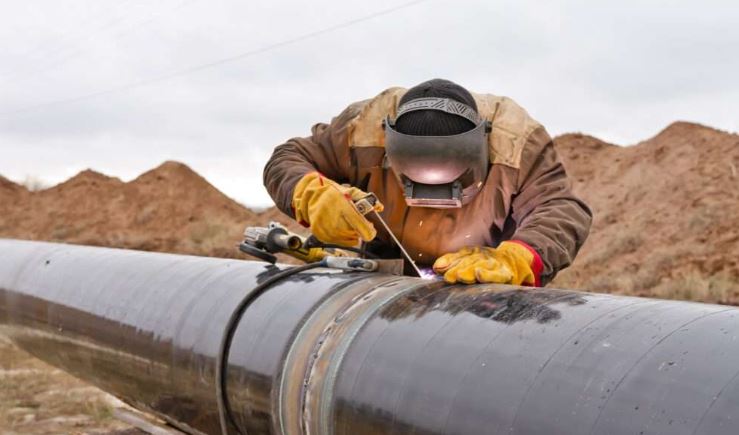Pipeline construction is a crucial component of infrastructure development in Dubai, a city known for its rapid growth and advanced technological innovations. Despite the progress, several challenges arise in the planning, execution, and maintenance stages of pipeline construction. This article explores these challenges, focusing on environmental, logistical, technical, regulatory, and socio-economic factors that impact pipeline projects in Dubai.
Environmental Challenges
Harsh Climatic Conditions
Dubai’s climate is characterized by extreme temperatures, high humidity, and intense sunlight, which can significantly impact pipeline construction. These conditions can cause materials to degrade faster, machinery to overheat, and workers to face severe health risks, leading to frequent delays and increased costs.
Sandstorms and Soil Erosion
The desert environment of Dubai is prone to sandstorms, which can hinder visibility, damage equipment, and disrupt construction schedules. Additionally, soil erosion and shifting sands pose a threat to the stability of pipeline routes, necessitating constant monitoring and maintenance to ensure structural integrity.
Logistical Challenges
Urban Density and Congested Infrastructure
Dubai’s rapid urbanization has led to densely populated areas with extensive infrastructure networks. Constructing new pipelines in such environments requires meticulous planning to avoid disrupting existing utilities and minimizing the impact on daily life. Coordinating with multiple stakeholders and securing necessary permits adds to the complexity.
Supply Chain Management
The construction of pipelines involves procuring materials, equipment, and skilled labor, often from international sources. Managing the supply chain efficiently is crucial to prevent delays. Factors such as shipping schedules, customs clearance, and storage facilities play a vital role in ensuring timely availability of resources.
Technical Challenges
Advanced Engineering Requirements
Dubai’s infrastructure projects often demand cutting-edge engineering solutions to meet high standards of safety, efficiency, and sustainability. Designing pipelines that can withstand environmental stressors, integrate with smart city technologies, and support future expansions requires specialized expertise and advanced technologies.
Geotechnical Investigations
Thorough geotechnical investigations are essential to understand the subsurface conditions along the pipeline route. Variations in soil composition, groundwater levels, and the presence of existing underground structures can significantly influence construction techniques and costs. Addressing these challenges requires comprehensive planning and adaptable strategies.
Regulatory Challenges
Stringent Safety and Environmental Regulations
Dubai has implemented rigorous safety and environmental regulations to ensure the well-being of its residents and the sustainability of its development. Compliance with these regulations involves extensive documentation, regular inspections, and adherence to best practices, which can be time-consuming and costly for pipeline construction projects.
Permitting and Approvals
Securing permits and approvals from various governmental and municipal authorities is a critical step in pipeline construction. The process can be lengthy and complex, involving multiple rounds of reviews and revisions. Delays in obtaining necessary permits can stall construction progress and increase project costs.
Socio-Economic Challenges
Public Opposition and Community Engagement
Pipeline projects often face resistance from local communities due to concerns about environmental impact, safety, and disruption of daily life. Engaging with the community, addressing their concerns, and obtaining their support is crucial for the smooth execution of pipeline projects. This requires transparent communication, public consultations, and sometimes, modifications to project plans.
Skilled Labor Shortages
Despite being a hub for international labor, Dubai occasionally faces shortages of skilled workers in specialized fields required for pipeline construction. This can lead to increased labor costs, reliance on expatriate workers, and potential delays in project timelines. Investing in local training programs and fostering talent development are essential to mitigate this challenge.
Mitigation Strategies and Best Practices
Adopting Innovative Technologies
The integration of innovative technologies such as Geographic Information Systems (GIS), Building Information Modeling (BIM), and remote sensing can enhance the efficiency and accuracy of pipeline construction projects. These technologies facilitate better planning, real-time monitoring, and data-driven decision-making, helping to address environmental and logistical challenges effectively.
Strengthening Project Management
Robust project management practices are vital to navigate the complexities of Pipeline Construction In Dubai. This includes detailed project planning, risk assessment, resource allocation, and continuous monitoring. Implementing agile methodologies and fostering collaboration among stakeholders can help in mitigating risks and ensuring project success.
Enhancing Collaboration and Stakeholder Engagement
Effective collaboration among government bodies, contractors, consultants, and the community is essential for the successful execution of pipeline projects. Establishing clear communication channels, involving stakeholders in the decision-making process, and maintaining transparency can build trust and facilitate smoother project implementation.
Investing in Workforce Development
To address skilled labor shortages, investing in workforce development initiatives is crucial. This includes training programs, apprenticeships, and partnerships with educational institutions to nurture local talent. Providing continuous professional development opportunities for workers can also enhance their skills and adaptability to evolving industry demands.
Sustainable and Resilient Design
Incorporating sustainable and resilient design principles in pipeline construction can help in overcoming environmental and technical challenges. This involves using durable materials, implementing energy-efficient practices, and considering the long-term impact of the project on the environment and the community. Designing pipelines with future expansions and adaptability in mind can also ensure their longevity and relevance.
Case Studies and Lessons Learned
Successful Pipeline Projects in Dubai
Examining successful pipeline projects in Dubai can provide valuable insights into overcoming common challenges. Road Marking Contractors In Dubai For instance, the construction of the Dubai Water Canal involved extensive coordination among various stakeholders, innovative engineering solutions, and effective project management practices. Learning from such projects can offer practical strategies for future endeavors.
Addressing Failures and Setbacks
Analyzing projects that faced significant challenges or setbacks can also provide important lessons. Identifying the root causes of issues, such as regulatory delays, environmental impacts, or community opposition, can help in developing proactive measures to avoid similar problems in the future. Continuous improvement and knowledge sharing are essential for advancing the pipeline construction industry in Dubai.

